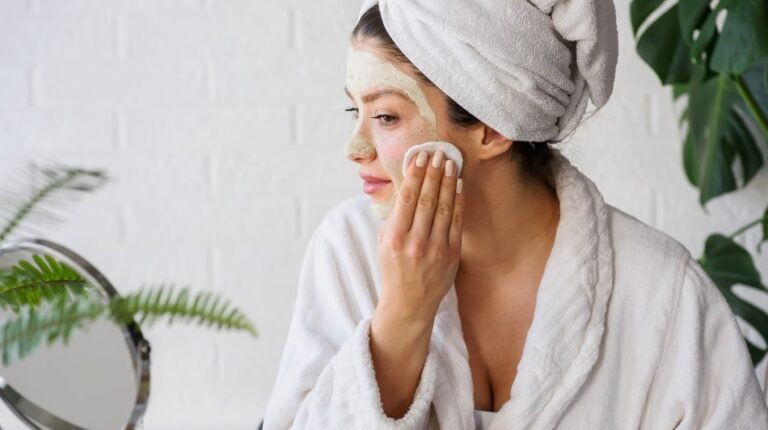Winter Skin Care with Essential Oils
Winter can be a magical season, with its serene snow-covered landscapes and cozy nights by the fire. However, it also brings harsh weather conditions that can wreak havoc on your skin. Cold winds, low humidity, and indoor heating can strip the skin of its natural moisture, leading to dryness, flakiness, and irritation. Essential oils, with their nourishing and therapeutic properties, can play a vital role in maintaining healthy skin during the winter months. This guide will explore the benefits of essential oils for winter skin care and provide practical tips on how to incorporate them into your daily routine.
Understanding Essential Oils
What Are Essential Oils?
Essential oils are concentrated plant extracts that capture the natural aroma and beneficial properties of their source. These oils are obtained through various methods, including steam distillation, cold pressing, and solvent extraction. Each essential oil contains unique compounds that can offer a range of benefits for the skin, such as hydration, anti-inflammatory effects, and antimicrobial properties.
Benefits of Essential Oils for Skin Care
Essential oils are rich in antioxidants, vitamins, and fatty acids, making them ideal for skin care. They can help soothe dry, irritated skin, reduce redness, and promote healing. Additionally, their aromatic properties can enhance your mood and overall well-being, which is especially important during the darker, colder months.
Common Essential Oils for Winter Skin Care
Lavender Oil
Lavender oil is renowned for its calming and soothing properties. It helps alleviate dryness and irritation, making it an excellent choice for winter skin care. Lavender oil also promotes healing and can be used to treat minor cuts, burns, and other skin issues that may arise during the winter.
Frankincense Oil
Frankincense oil has powerful anti-inflammatory and anti-aging properties. It helps improve skin elasticity, reduce the appearance of fine lines and wrinkles, and promote an even skin tone. This makes it a valuable addition to your winter skin care routine, as it can counteract the effects of cold weather on the skin.
Rosehip Oil
Rosehip oil is rich in essential fatty acids and vitamins A and C. It helps lock in moisture, repair damaged skin, and reduce the appearance of scars and hyperpigmentation. Rosehip oil is particularly effective in combating the dryness and flakiness that often accompany winter weather.
Tea Tree Oil
Tea tree oil is known for its antibacterial and antifungal properties. It can help prevent and treat acne, which can sometimes flare up during the winter months due to changes in skin hydration levels. Tea tree oil also soothes irritated skin and reduces redness and inflammation.
Geranium Oil
Geranium oil is a versatile essential oil that balances oil production, tightens skin, and reduces the appearance of pores. It also has anti-inflammatory and antiseptic properties, making it beneficial for treating various skin conditions, including eczema and dermatitis, which can be exacerbated by winter weather.
Incorporating Essential Oils into Your Winter Skin Care Routine
Moisturizing
One of the primary concerns during winter is keeping the skin adequately moisturized. Essential oils can be added to your regular moisturizer or used to create a DIY blend. For example, you can mix a few drops of rosehip oil with a carrier oil like jojoba or almond oil and apply it to your skin after cleansing. This helps lock in moisture and creates a protective barrier against the elements.
Facial Serums
Facial serums are an excellent way to deliver concentrated nutrients to your skin. You can create a custom serum by combining essential oils with a carrier oil. A simple yet effective recipe includes 10 drops of lavender oil, 5 drops of frankincense oil, and 2 tablespoons of rosehip oil. Apply a few drops of this serum to your face and neck after cleansing and before moisturizing.
Face Masks
Face masks provide an intensive treatment that can rejuvenate and hydrate your skin. You can make a hydrating mask by mixing 1 tablespoon of honey, 1 tablespoon of plain yogurt, and a few drops of essential oil like lavender or geranium. Apply the mask to your face, leave it on for 15-20 minutes, and then rinse off with warm water. This will leave your skin feeling soft, smooth, and nourished.
Lip Care
Chapped lips are a common problem during the winter. Essential oils can help keep your lips soft and hydrated. You can make a simple lip balm by melting 1 tablespoon of beeswax with 1 tablespoon of coconut oil, then adding a few drops of essential oil such as peppermint or lavender. Pour the mixture into a small container and let it cool. Apply it to your lips as needed to prevent and treat chapping.
Body Oils
Your body needs just as much care as your face during the winter. Create a moisturizing body oil by mixing your favorite essential oils with a carrier oil like coconut or almond oil. For example, you can combine 10 drops of lavender oil, 5 drops of geranium oil, and 1/4 cup of carrier oil. Apply this blend to your skin after a shower to lock in moisture and keep your skin soft and smooth.
Tips for Using Essential Oils Safely
Dilution
Essential oils are highly concentrated and should always be diluted with a carrier oil before applying to the skin. A common dilution ratio is 1-2% essential oil to carrier oil, which equates to about 6-12 drops of essential oil per ounce of carrier oil.
Patch Testing
Before using a new essential oil, it’s important to perform a patch test to ensure you don’t have an allergic reaction. Apply a small amount of diluted essential oil to a patch of skin on your inner arm and wait 24 hours to see if any irritation occurs.
Quality
Choose high-quality, pure essential oils from reputable sources. Look for oils that are labeled as 100% pure, therapeutic grade, and free from additives or synthetic ingredients.
Storage
Store essential oils in dark glass bottles away from direct sunlight and heat. This helps preserve their potency and extends their shelf life.
Consultation
If you have sensitive skin or any underlying skin conditions, consult with a dermatologist or a qualified aromatherapist before incorporating essential oils into your skin care routine.
Conclusion
Essential oils offer a natural and effective way to care for your skin during the harsh winter months. Their nourishing, hydrating, and healing properties can help combat dryness, irritation, and other common winter skin issues. By incorporating essential oils like lavender, frankincense, rosehip, tea tree, and geranium into your skin care routine, you can maintain healthy, glowing skin all winter long. Remember to use essential oils safely and enjoy the added benefit of their soothing aromas and therapeutic effects. With the right essential oils, winter skin care can be a luxurious and enjoyable part of your daily routine.







